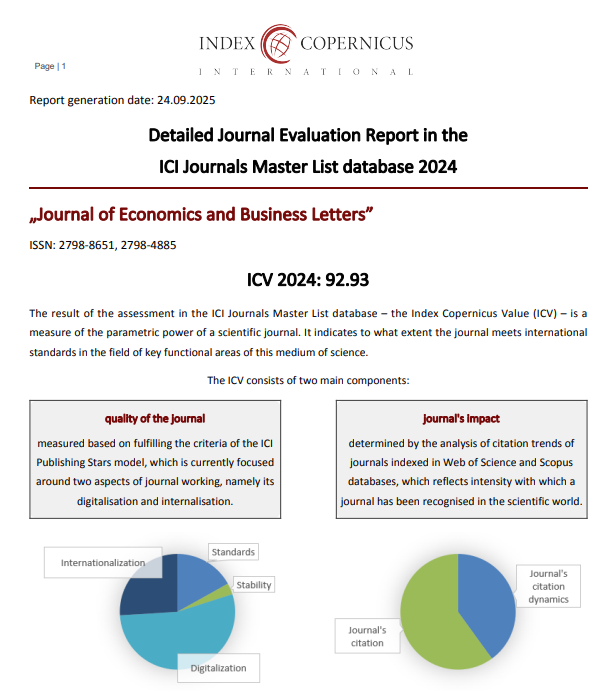Short-termism in social organizations
DOI:
https://doi.org/10.55942/jebl.v5i5.605Keywords:
Social entrepreneurship, Nonprofit organizations, Short-termism, Sustainable Development Goals (SDGs)Abstract
Social organizations, defined as social entrepreneurship and nonprofit organizations, aim to meet societal objectives and play an important role in achieving sustainable development goals (SDGs). However, social organizations may fall into short-termism, defined as favoring short-term goals over long-term objectives. This undermines social organizations’ ability to meet their long-term objectives and, in turn, negatively affects efforts to meet sustainable development goals. This note presents the channels that contribute to short-termism in social organizations. Three channels are presented and discussed herein. First, if investors and donors are short-term oriented, social organizations may focus on meeting short-term goals over long-term objectives to satisfy the demands of investors and donors and attract their funding. Second, if the management of a social organization is short-term oriented, it will be inclined to prioritize short-term goals over long-term objectives. Third, scaling up operations may result in neglecting the long-term objectives of social organizations. Understanding the roles of these channels is important for providing a better understanding of short-termism in social organizations.
References
Ashforth, B. E., & Reingen, P. H. (2014). Framing the natural food co-op: A case study in organizational identity. Administrative Science Quarterly, 59(3), 477-510.
Bansal, P., Jiang, R., & Jung, J. (2017). Time for a change: Temporal shifts in organizational attention to environmental issues. Organization Science, 28(2), 321-337.
Chen, Y., Zhang, X., & Li, Y. (2023). Donor expectations and their impact on social organizations' sustainability practices. Journal of Nonprofit & Public Sector Marketing, 35(1), 45-62.
Gormezoglu, Z., Sahin, S., & Toker, K. (2024). The power of thriving: How social sustainability in organizations relies on a culture of knowledge sharing. Journal of Business Research, 108, 1-10. https://doi.org/10.1177/21582440241295817
Laverty, K. J. (1996). Economic "short-termism": The debate, the unresolved issues, and the implications for management practice and research. Academy of Management Review, 21(3), 825-860. https://doi.org/10.5465/amr.1996.9702100316
WCED (World Commission on Environment and Development). (1987). Our common future. Oxford University Press. http://ir.harambeeuniversity.edu.et/bitstream/handle/123456789/604/Our%20Common%20Future%20World%20Commission%20on%20Environment%20andDevelopement.pdf?sequence=1&isAllowed=y
Yu, K. (2017). Scaling up social enterprises: The role of impact investors. Journal of Social Entrepreneurship, 8(2), 123-141.
Zhang, Y., Liu, J., & Wang, H. (2022). The impact of rapid scaling on organizational performance in social enterprises. Nonprofit Management and Leadership, 33(4), 567-584.
Downloads
Published
How to Cite
Issue
Section
License
Copyright (c) 2025 Jafar El Armali

This work is licensed under a Creative Commons Attribution 4.0 International License.
















